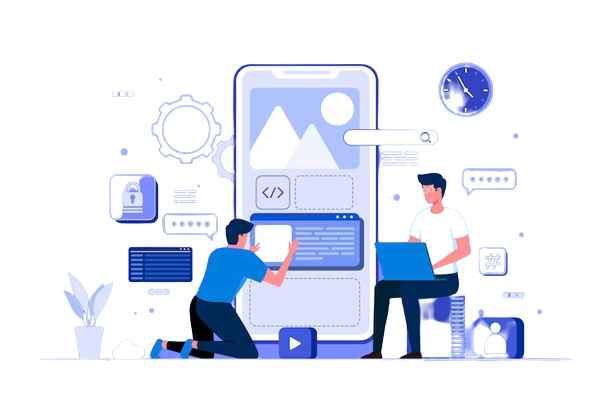Introduction
The fusion of Machine Learning (ML) and Artificial Intelligence (AI) has ushered in a new era of technological possibilities, particularly in the realm of mobile app development. The integration of these cutting-edge technologies has enabled mobile apps to become smarter, more intuitive, and capable of delivering highly personalized user experiences. In this article, we explore the transformative impact of integrating Machine Learning and Artificial Intelligence in mobile apps and the myriad benefits they bring to both developers and users.
- Personalized User Experiences
Machine Learning and AI algorithms have the power to analyze user behavior, preferences, and interactions within an app. This data-driven approach allows mobile apps to tailor experiences to individual users. For example, an e-commerce app can recommend products based on a user’s browsing and purchase history, enhancing user engagement and increasing the likelihood of conversions. Personalization fosters a sense of connection and relevance, ultimately leading to improved customer satisfaction and loyalty.
- Enhanced Predictive Capabilities
AI and ML can predict user actions and preferences with a high degree of accuracy. Mobile apps can leverage predictive analytics to anticipate user needs and proactively provide relevant content or suggestions. For instance, a weather app can predict upcoming weather conditions based on historical data, user location, and current weather patterns. These predictive capabilities not only improve user experiences but also position apps as valuable tools that simplify users’ daily lives.
- Natural Language Processing (NLP)
NLP is a subset of AI that empowers mobile apps to understand and interact with human language. Voice assistants like Siri, Google Assistant, and Amazon Alexa rely heavily on NLP to interpret and respond to user queries. Integrating NLP into mobile apps enables voice search, voice commands, and even chatbot interactions. This technology creates seamless and intuitive communication channels between users and apps, enhancing usability and accessibility.
- Image and Video Recognition
ML-powered image and video recognition have revolutionized various industries, from healthcare to entertainment. Mobile apps can use image recognition to identify objects, landmarks, or products captured through the device’s camera. This technology enables apps to offer features like augmented reality (AR) overlays, where digital elements interact with real-world objects, enhancing user engagement and providing immersive experiences.
- Efficient Data Processing
AI and ML algorithms excel at processing large volumes of data quickly and efficiently. This capability is particularly valuable for apps that rely on data analysis, such as fitness and health-tracking apps. These apps can process and interpret complex health data, providing users with meaningful insights into their well-being. Additionally, AI algorithms can detect patterns and anomalies in data, aiding in early detection of potential health issues.
- Fraud Detection and Security
Security is a paramount concern in mobile app development. AI and ML algorithms can detect unusual patterns in user behavior, helping to identify potential security breaches or fraudulent activities. Banking apps, for instance, can use AI to analyze transaction histories and promptly flag suspicious transactions, offering users an added layer of protection against unauthorized activities.
- Smart Automation
AI-driven automation can streamline various aspects of app functionality. For example, e-commerce apps can use AI to automate inventory management, restocking, and order fulfillment processes. Machine Learning algorithms can analyze user interactions and automate responses, enhancing customer support through chatbots that provide quick and accurate answers to user inquiries.
Conclusion
The integration of Machine Learning and Artificial Intelligence in mobile apps is reshaping the digital landscape. By leveraging predictive analytics, NLP, image recognition, efficient data processing, security enhancements, and smart automation, mobile apps are becoming smarter, more efficient, and capable of delivering personalized experiences that cater to users’ specific needs. Developers who embrace these technologies can create apps that stand out in a competitive market, drive user engagement, and foster lasting user loyalty. As AI and ML continue to evolve, the potential for innovation in mobile app development is boundless, promising exciting possibilities for the future of user experiences.

